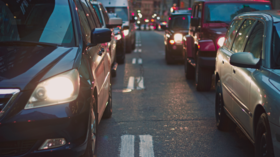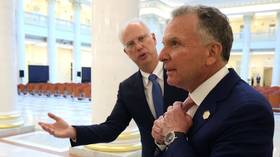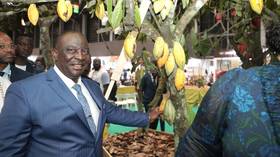'Incentive to create havoc’: Self-driving cars set to turn streets into gridlocked hell – study

Driverless cars could spark a gridlock nightmare to avoid paying for parking, a new study warns. Autonomous vehicles could even gang up to create traffic delays, allowing them to continuously cruise around instead of park.
The idea sounds like a smart one: Avoid ever having to pay for parking by getting your car to simply continue to drive around the block until you’re ready to take off again. However, this seemingly savvy hack could turn our urban streets into traffic-clogged hellscapes, roads flooded with driverless cars, making it a challenge to actually get anywhere.
Also on rt.com Tesla to recall over 14,000 Model S cars in China amid industry-wide crackdown on exploding airbagsProfessor Adam Millard-Ball of UC Santa Cruz warns that we could face “robot-fuelled gridlock” with autonomous vehicles in the future. He has estimated that in a best case scenario, it would take just 2,000 self-driving cars to slow traffic in the city to less than 2mph.
“Parking prices are what get people out of their cars and on to public transit, but autonomous vehicles have no need to park at all. They can get around paying for parking by cruising,” he said. “They will have every incentive to create havoc.”
Millard-Ball conducted the first analysis of the combined impact of parking costs and self-driving cars on city centers, published in the journal Transport Policy, which predicts how San Francisco could be affected by such an issue.
Slowly cruising around is more cost effective than paying for parking, and the study reveals autonomous cars could actually coordinate with each other to create congestion, allowing them to drive at a slow pace.
Also on rt.com Spider-like walking car seeks to revolutionize disaster recovery (VIDEO, PHOTOS)The vehicles could more than double travel times in urban areas.
Millar-Ball suggests driverless cars pay a congestion fee to alleviate the problem and help fund improved city transport. “The idea is to do it now before autonomous vehicles become widespread,” he added.
Like this story? Share it with a friend!













